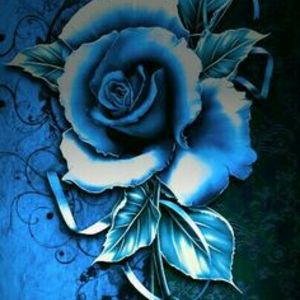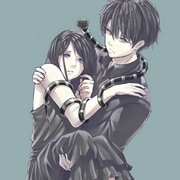From his vantage point atop the hill, Esfandar gazed down upon the walled city of Shiraz. It was not a large city by any definition, but there was much more to this place than met the eye. There was history here. This was the city to which Mavir the Conqueror had returned from his campaign against the Western tribes. From those high walls, Esfandar’s own ancestor, Shah Ramadin al-Hassan, had hung the corpses of the Varaz rebels.
Esfandar enjoyed history. Its tales of glory and sorrow, tragedy and victory, always so interwoven that it was almost impossible to separate the light from the dark. But it was not the history of Shiraz that would serve him now, but the geography.
The walls of the city were tall structures of thick iron, with rows and rows of steel pikes sticking up menacingly at the top. An easily defensible position, a fortress any wise shah or khan would envy. It would be exceedingly difficult to overtake such a fortress- but not impossible.
Esfandar’s army fanned out around the city, fifty thousand strong with at least a dozen catapults behind them. The entire population of Shiraz was perhaps twenty thousand at best, and that including the women and children. Behind the high walls of the city, the chances of the Shirazi forces were improved, but there was no doubt about what the eventual outcome of this battle would be.
In a different war, a different time, Esfandar would have insisted on laying siege to the city and waiting them out. Now, he did not have the luxury.
He needed that city, and he needed it now.
“The soldiers await your orders, shah-an-shah,” Babak said at his side. The slender wisp of a man was slight in stature, but a formidable general and a brilliant mind. When Esfandar didn’t immediately answer, he followed Esfandar’s gaze to the high walls of Shiraz.
Esfandar’s gaze lingered on the city for a moment longer. Then he straightened his shoulders and turned to Babak.
“Good,” he said, giving a nod of approval to the general. “The assault will begin soon.” He turned and strode through the amassed ranks of men, Babak following close at his heels. His men were ready. Standing in organized formation and at attention, they were well trained and tested for this fight. Esfandar took a deep breath, quickening his pace. The largest and most experienced army in the entire Parthian empire was his to command.
Esfandar noted the dark red turbans and bronze breast plates of his infantrymen as he passed them by. Rows and rows of them, so many that they seemed to go on forever. They all stared straight ahead as he passed, gazes fixed on some point far in the distance.
Passing the infantry, next came the cavalry. Men sat tall and proud upon steeds as black as night, swords clasped tightly in their hands. The cavalrymen’s uniforms were lighter than the infantry’s. They wore less armor, in order to be a lighter burden on their mounts, but wore vests of tough leather to compensate. They donned the same red turbans as every soldier in his army, but the simple silver ornaments decorating the turbans signified their higher rank.
Then came not the last of his army’s units, but certainly the most eye-catching- the elephantry stood at strict attention, with an occasional trumpet here and there of an impatient beast. The magnificent animals loomed over everything else around them, like small mountains moving amongst the plains.
Each elephant wore sheaves of bronze armor over the front of its trunk and on its sides to protect it from enemy arrows. It would be fairly simple for a sword to locate a chink in the trunk and plunge into the elephant’s hide. But Esfandar knew from experience that this was a minor concern- most men would be trampled to death before they had such an opportunity.
Astride the necks of the elephants rode the mahouts, the elephant tamers, who would guide them as best they could during the battle. A rampaging elephant was an unstoppable force on the battlefield, but useless to an army if it trampled its own soldiers. From the saddles strapped to the creatures’ backs, an archer would shoot at men from above.
As far as Esfandar was concerned, a single elephant was worth more than one hundred times its weight in gold. A single one of the creatures was powerful enough to turn the tide of a battle.
“Your highness.” Gita strode between the columns of elephants to approach him, her steps purposeful. Her long braid bounced against her back with every step. She bowed her head forward to him before speaking. “We are ready- give us the order to attack.”
Gita turned her gaze to meet his, her dark brown eyes burning with a hunger he recognized- the scent of battle was close.
Gita was the only one in his army who wore no uniform. Instead, she wore the traditional battle outfit of the Western Kalla tribes. A ragged shirt and vest made of boar hide and loose fitting trousers cinched by a thin belt. Her upper arms were adorned with a dozen different bangles- some of gold or precious metals, others of dulled wood or scrappy coils of rope. Esfandar wondered how she was never bothered by them during battle, but she never seemed to have any trouble.
“We attack now,” Esfandar said, looking at both Gita and Babak. “Give the orders to your battalions. The third infantry battalion is mine.”
Gita didn’t smile- that was a rare sight these days- but his words put a twinkle in her eyes. Babak’s brow furrowed as he bowed his head.
“As you command, shah-an-shah,” the two of them said in unison, then dispersed quickly to pass on his orders.
Esfandar himself turned around to walk back the way he’d came, back to the seemingly endless columns of infantrymen. He would lead the third division into battle as part of the initial attack. He took a steady breath, resting his right hand on the hilt of his sword. As he took his position before his troops, he felt his heartbeat begin to increase, so loud that he feared his men would hear it. They didn’t, of course. It was all in his head.
All eyes seemed to turn to him expectantly. The air was still with anticipation, an anticipation that only he had the power to break.
Esfandar drew his sword from its sheath with one swift movement.
“Soldiers,” He cried out, loud enough for the men around him to hear. “Today we fight for our homeland, for our families and for the gods. In their name, we will win this victory for Parthia.” He raised his sword high in the air. “Blessed be the flames!” He bellowed.
“Blessed be the flames!” The cry rang out from the lines of soldiers. It spread from man to man, row to row, until it was a chant, a prayer, a cry for victory.
The former silence of the air was broken by the noise of men everywhere as soldiers screamed their hopes and fears into words. Esfandar raised his sword in the air and joined his voice with theirs, screaming at the top of his lungs.
And the war drum sounded- the battle had begun.











Comments (0)
See all